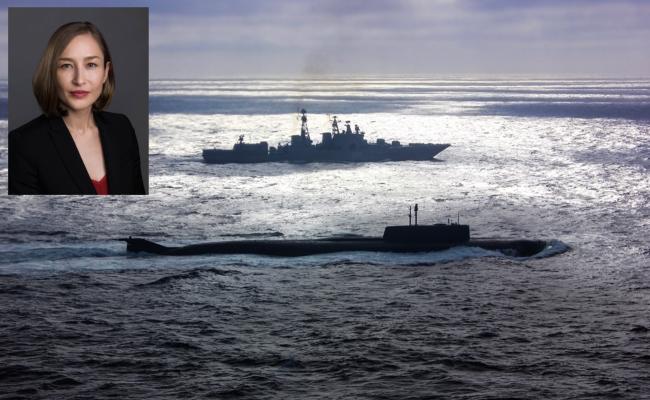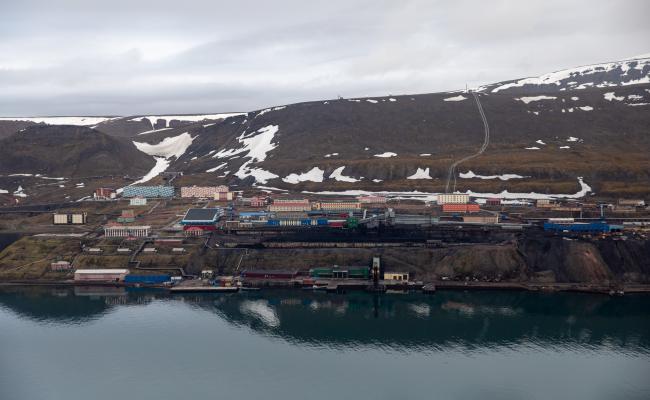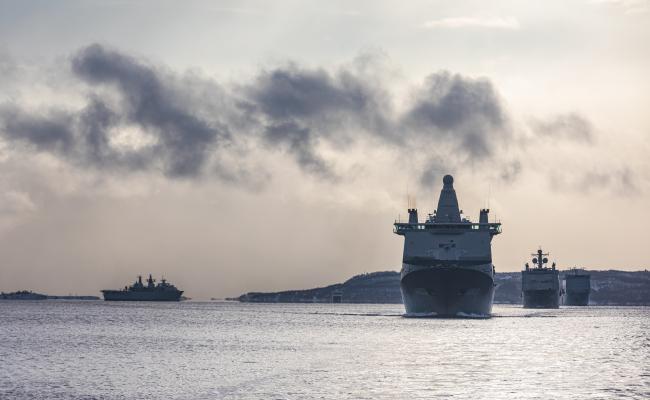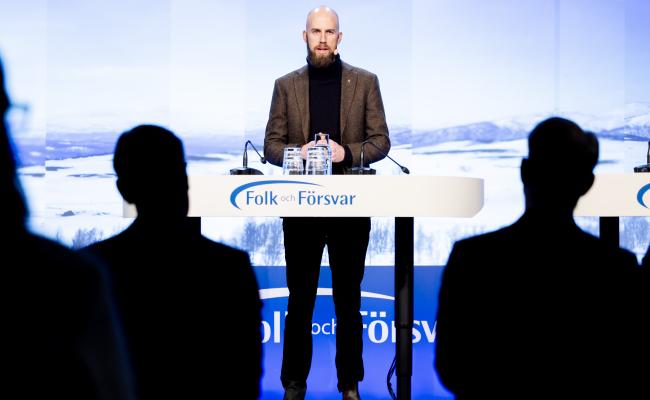"Moscow Sees Its Posture in the Arctic As More Exposed Than Just a Few Years Ago"
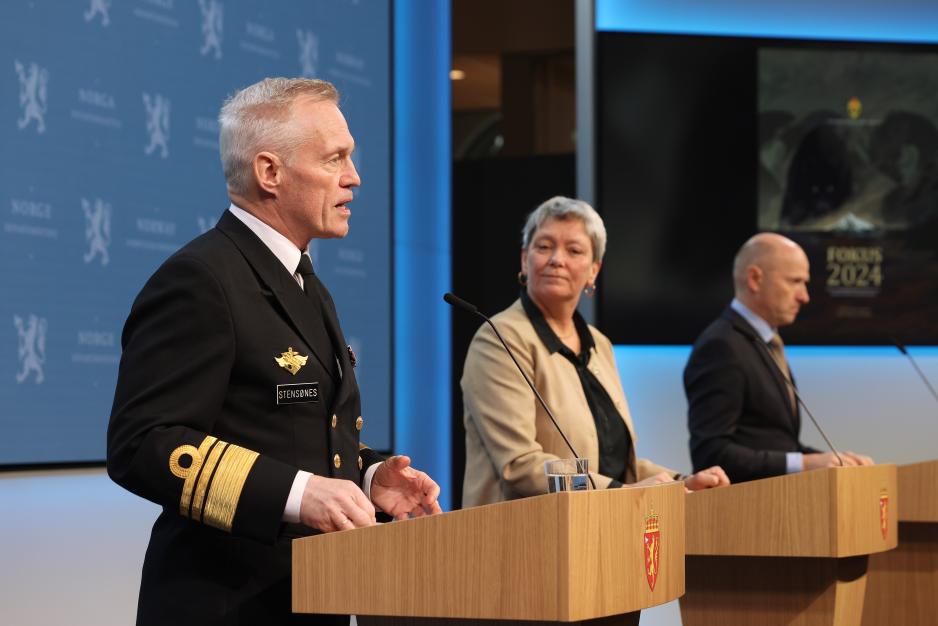
Chief of the Norwegian Intelligence Service, Vice Admiral Nils Andreas Stensønes, Chief of the Norwegian Police Security Service, Beate Gangås, and Chief of the National Security Authority, Lars Christian Aamodt, at the presentation of the threat assessment for 2024. (Photo: Torbjørn Kjosvold / the Norwegian Armed Forces)
"Russia will continue to build military infrastructure and test new weapon systems in our immediate areas. In the short term, however, Russia does not pose a conventional military threat," says Chief of the Norwegian Intelligence Service, Nils Andreas Stensønes. On Monday, he presented the service's public threat and risk assessment for 2024.
On Monday, the Norwegian Intelligence Service (NIS), the Police Security Service (PST), and the Norwegian National Security Authority (NSM) presented their public threat and risk assessments for 2024.
During the three security authorities' joint press conference, the Chief of the NIS, Nils Andreas Stensønes, emphasized that Norway is currently facing a more serious threat situation than last year.
Stensønes pointed to Russia's war of aggression against Ukraine and how the country is about to gain a military upper hand. At the same time, he stated that Russia considers the Ukraine War a proxy war with the West.
Moscow sees its posture in the Arctic more exposed than a few years ago.
Measures below the threshold of war
In the short term, Russia does not pose a conventional military threat against Norway, says Stensønes, but emphasizes that Russia's military strategy involves affecting the opponent's will to fight, as well as military capability.
"The fact that Russia sees itself in a lasting conflict with the West indicates that they will attempt to affect our will and ability to protect our interests. And in Russian military doctrine, civilian targets are also legitimate; as political leadership, socially critical infrastructure, and targets of major economic value. The targets can be affected by various measures under the level of military conflict," said Stensønes.
He emphasized that this could happen through political influence, information warfare, cyber operations, sabotage, infiltration, breaches in energy supplies, or border violations.
The chiefs of the PST and the NSM also emphasized the use of complex measures against the Norwegian society.
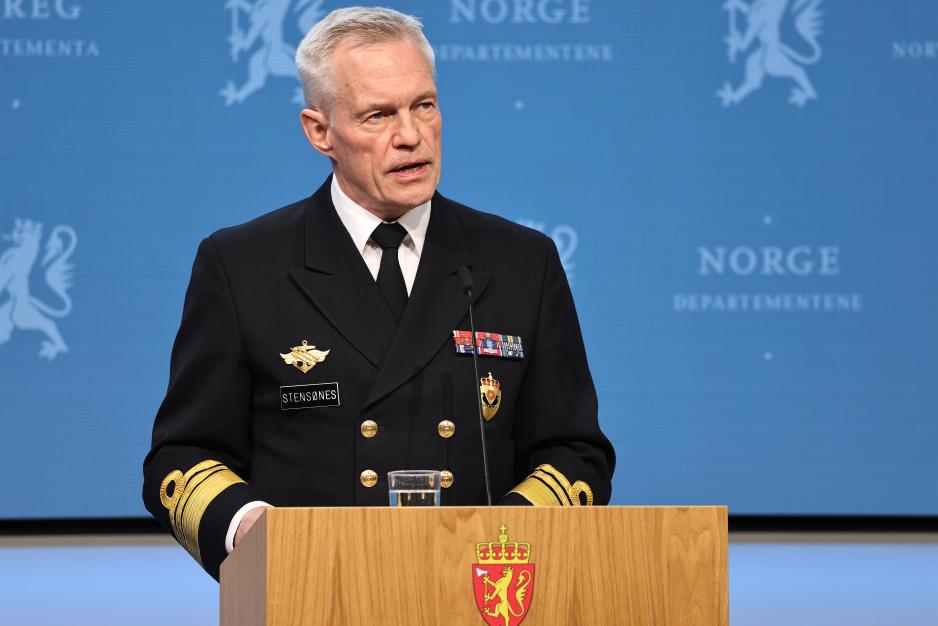
The Chief of the Norwegian Intelligence Service, Vice Admiral Nils Andreas Stensønes, during the presentation of the National Threat Assessment 2024. According to the Intelligence Service's report, Focus 2024, the public conversation about defense, security, Arctic, Svalbard, energy, and environment policy, and not least the West's and Norway's approach to the war in Ukraine is especially exposed to Russian influence activity. (Photo: Torbjørn Kjosvold / the Norwegian Armed Forces).
Russia's posture in the Arctic is more exposed
Furthermore, the chief of the Intelligence Service gave a description of the security policy development in Norway's immediate areas and highlighted the strategic significance of the Arctic to Russia in particular, but also to China.
"Moscow sees its posture in the Arctic more exposed than a few years ago. This development also carries a risk of accidents, misunderstandings, and escalation. China does not pose a military threat to Norway but has interests in establishing a political, economic, and, eventually, military foothold in the Arctic. Investments in icebreakers and other polar capacities have allowed them to operate more independently."
The NIS report Focus 2024, published on Monday, elaborates on the later development of increased allied military activity in the Arctic and the High North while Russian authorities attempt to counteract political isolation by inviting new actors into the civilian side, particularly BRICS countries.
BRICS is a cooperation forum for Brazil, Russia, India, China, and South Africa.
Greatest capacity in Norway's immediate areas
Stensønes also pointed out that Russia has announced a strengthening of its military capacities in Norway's immediate areas – beyond pre-war levels.
"With the temporary weakened conventional ability, the significance of Russia's strategic deterrence forces increase, and they have their greatest capacity in our immediate areas," he said and added:
"The naval forces are little affected by the war, and the Northern Fleet remains the greatest military threat against Norway. Their vessels could threaten NATO's supply lines, and the submarines could hit targets across Europe and the US."
"In the Arctic, Russia will continue to build military infrastructure, and they will continue to test new weapon systems in our immediate areas – with a risk of accidents and local radioactive emissions."



